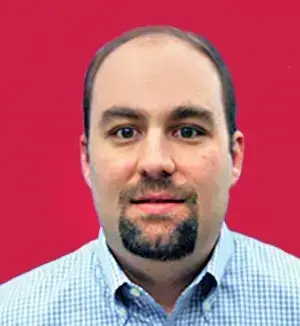For undergraduate students who may not have research opportunities at their own institutions, the Research Experience for Undergraduates in Chemistry and Chemical and Biological Engineering at UW-Madison offers an unparalleled opportunity to conduct research under some of the world’s most accomplished faculty members.
A program offered through the chemistry, chemical and biological engineering, and materials science and engineering departments at UW-Madison, the REU brings students from across the country to the university for 10 weeks in summer to do research guided by UW-Madison faculty and graduate students.

The program began with a five-student cohort in 2006, with funding from the National Science Foundation through the Nanoscale Science & Engineering Center at UW-Madison. The success of that initiative inspired program director Andrew Greenberg and collaborators to keep it going. In 2010, they applied for and received an NSF grant to support further development of the REU program, which has since been renewed in 2012 and in 2017. Now nationally acclaimed, the program receives 500 to 700 applications to fill 35 to 40 slots each year.
The REU program also provides infrastructure for other summer research experiences at UW-Madison, supporting a larger community of scholars and creating a rich and educational community that benefits all involved.
“Students are immersed socially as well as professionally,” says Greenberg, a distinguished faculty associate in CBE. “They’re integrated into a program where they can have the full experience.”
Successful REU applicants are placed in the labs of participating faculty mentors who foster growth in the applicants’ areas of interest. In chemical and biological engineering, past REU alumni have researched stem cells under Milton J. and A. Maude Shoemaker Professor Sean Palecek, biofuels in the labs of Ernest Micek Distinguished Chair James Dumesic and Harvey D. Spangler Professor George Huber, and liquid crystalline materials under John T. and Magdalen L. Sobota Professor and Hilldale Professor Nicholas Abbott, to name a few. Working closely with faculty and graduate students in these labs, students attend weekly faculty-led seminars, participate in professional development opportunities, and present their research in a poster session at the end of the summer.
One aspect of professional development the program offers is improvisation workshops, which encourage students to be creative and think on their feet. The idea for these workshops came from science and engineering communication workshops at the Museum of Science in Boston. Now Anne Lynn Gillian-Daniel, education director of the Materials Research Science and Engineering Center at UW-Madison and affiliate with the Madison-based improvisation studio Atlas Improv, coordinates the workshops for the REU and has helped to incorporate them into UW-Madison’s curriculum.
According to Greenberg, 10 to 20 percent of students who go through the program ultimately return to UW-Madison as graduate students.
Greenberg enjoys seeing students, particularly those from community and technical colleges, come to UW-Madison for the summer and discover that graduate school is an attainable goal—that they actually can conduct innovative research at a top university. “Seeing students grow over the summer and seeing the program convince students that they have what it takes to compete with anybody and launch their careers—that’s really rewarding for me,” Greenberg says.